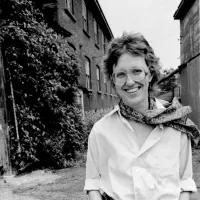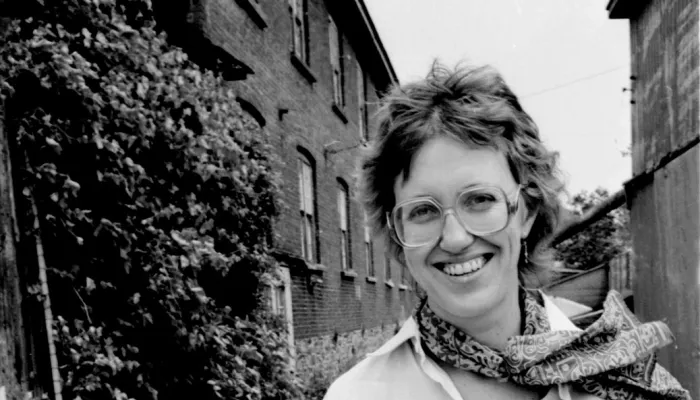Your best friend falls in love
and her brain turns to water.
You can watch her lips move,
making the customary sounds
but you can see they’re merely
words, flimsy as bubbles rising
from some golden sea where she
swims sleek and exotic as a mermaid.
It’s always like that.
You stop for lunch in a crowded
restaurant and the waitress floats
toward you. You can tell she doesn’t care
whether you have the baked or french-fried
and you wonder if your voice comes
in bubbles too.
It’s not just women either. Or love
for that matter. The old man
across from you on the bus holds
a young child on his knee; he is singing
to her and his voice is a small boy
turning somersaults in the green
country of his blood.
It’s only when the driver calls his stop
that he emerges into this puzzle
of brick and tiny hedges. Only then
you notice his shaking hands, his need
of the child to guide him home.
All over the city
you move in your own seasons
through the seasons of others: old women, faces
clawed by weather you can’t feel
clack dry tongues at passersby
while adolescents seethe
in their glassy atmospheres of anger.
In parks, the children
are alien life-forms, rooted
in the galaxies they’ve grown through
to get here. Their games weave
the interface and their laughter
tickles that part of your brain where smells
are hidden and the nuzzling textures of things.
It’s a wonder that anything gets done
at all: a mechanic flails
at the muffler of your car
through whatever storm he’s trapped inside
and the mailman stares at numbers
from the haze of a distant summer.
Yet somehow letters arrive and buses
remember their routes. Banks balance.
Mangoes ripen on the supermarket shelves.
Everyone manages. You gulp the thin air
of this planet as if it were the only
one you knew. Even the earth you’re
standing on seems solid enough.
It’s always the chance word, unthinking
gesture that unlocks the face before you.
Reveals the intricate countries
deep within the eyes. The hidden
lives, like sudden miracles,
that breathe there.
Do you ever wonder how anything gets done when we’re all swirling in our own galaxies of thought and experience? This poem does too.
- What kind of “magic” is happening in this poem?
- This poem has many vivid similes (a comparison using "like" or "as") and metaphors (a comparison that doesn't use "like" or "as"). Is there one that stands out to you? Why that one?
- The poet chose to use the second person in this poem. What effect does that have on your reading of the poem? How would your experience of the poem change if it were written in the third person?
- Who is the speaker in this poem? What do we know about them? Do you think they're relaxed, amazed, crabby about what they're seeing unfold?
- If you were going to recite this poem, would you keep an even pace throughout or would you speed up and slow down at certain points?
- Think of two words, like “common” and “magic,” that contradict one another (an oxymoron). Start with that as your poem title and write about that contradiction. As a nod to “Common Magic,” try to include some interesting similes or metaphors.
Useful Links
Read this story about Bronwen Wallace as told by her friend and fellow poet Carolyn Smart.
Read about the recent winner and finalists for the Bronwen Wallace Award for Emerging Writers.
“Common Magic” by Bronwen Wallace is reprinted from Common Magic by permission of her estate.





